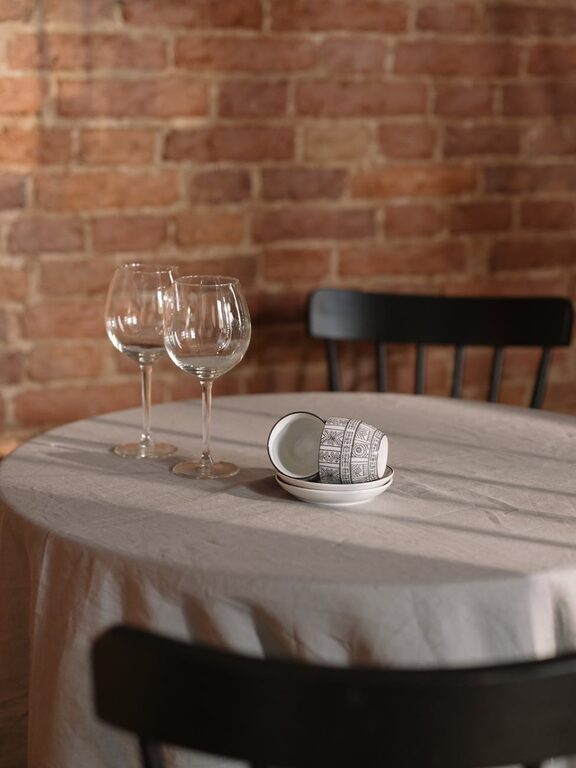Cleaning up after dinner can often feel like a daunting task, especially after preparing and enjoying a meal with family or friends. However, with some simple strategies and smart planning, you can significantly reduce the stress and time spent on dinner cleanup. In this post, we’ll explore effective ideas to make your kitchen cleanup easier, so you can focus more on enjoying your meal and less on the mess afterward.
1. Prepare Ahead to Minimize Mess
One of the best ways to make dinner cleanup easier is to think ahead before you start cooking. Preparing your kitchen and ingredients efficiently can reduce the number of dishes you use and make washing up less overwhelming.
Use Fewer Cooking Tools
– Plan recipes that use a single pot or pan when possible, such as one-pot pasta or sheet pan dinners.
– Use kitchen gadgets that combine multiple functions, like a food processor that chops and mixes, to cut down on the number of bowls and utensils.
– Line baking trays with parchment paper or foil to avoid scrubbing.
Organize Ingredients Beforehand
– Measure and prep all ingredients before cooking to streamline the process.
– Use bowls or containers for chopped vegetables and spices, which can also help avoid spills.
2. Clean As You Go
Cleaning as you cook is a popular strategy among chefs for a reason: it spreads out the cleanup and keeps things manageable.
– Wash cutting boards, knives, and utensils immediately after use or while your food is cooking.
– Wipe down countertops and spills right away to prevent stains or sticky surfaces.
– Place used dishes directly in the dishwasher or rinse them in the sink as you finish with them.
Creating a routine of tidying up during cooking saves time and energy once everyone has finished eating.
3. Simplify Dinnerware and Serve Smartly
The type of plates and serving dishes you use can affect cleanup time as well.
Choose Easy-to-Clean Dinnerware
– Opt for dishwasher-safe plates, bowls, and utensils to speed up the drying and cleaning process.
– Consider using non-stick cookware, which often requires less scrubbing.
Serve Family-Style
– Instead of plating individual portions in separate dishes, serve food in larger bowls or platters.
– This approach reduces the number of serving dishes needing washing.
Alternatively, using sturdy, reusable plates and cups for casual meals can limit washing compared to multiple formal pieces.
4. Utilize Kitchen Tools That Aid Cleanup
There are several kitchen tools and accessories designed to help streamline cleanup after cooking.
Silicone Baking Mats and Cooking Liners
– These mats are reusable and prevent food from sticking to pans, saving scrubbing time.
Dish Racks and Sink Organizers
– A well-placed dish rack or organizer helps air dry clean items efficiently.
– Sink caddies for sponges and brushes keep the cleaning area neat and accessible.
Garbage Bowl
– Keep a bowl on the counter for food scraps while cooking; this prevents multiple trips to the trash and avoids cluttering the workspace.
5. Delegate and Make Cleanup a Group Effort
Involving family members or housemates in the cleanup can make the task quicker and more enjoyable.
– Assign simple tasks such as clearing the table, rinsing dishes, or wiping surfaces.
– Turn cleanup time into a team activity, perhaps with music to keep the mood light.
Sharing responsibility not only teaches good habits but also frees you from having to do everything alone.
6. Use Soaking to Your Advantage
Certain pots, pans, and dishes may have baked-on food that’s hard to remove immediately.
– Fill these items with warm, soapy water and let them soak while you eat or relax.
– Soaking loosens stuck-on residue, making washing easier afterward.
Removing tough grime becomes less of a chore with this simple trick.
7. Maintain Regular Kitchen Organization
An organized kitchen reduces confusion and speeds up cleanup.
– Keep cleaning supplies like dish soap, scrubbers, and towels handy and stocked.
– Store frequently used utensils near the prep and cooking areas to minimize movement.
– Label containers and keep similar items together for easy access.
When everything has its place, both cooking and cleanup become smoother processes.
8. Consider Minimalist Meals Occasionally
Sometimes choosing simple meals with fewer ingredients and steps is the best way to ease cleanup.
– Examples include salads, sandwiches, or meals prepared directly on the grill or in slow cookers.
– Minimalist meals allow you to enjoy tasty food without overwhelming your kitchen afterward.
Balancing elaborate dinners with easy-to-clean meals can be a smart weekly strategy.
Final Thoughts
Dinner cleanup doesn’t have to be stressful or time-consuming. By preparing ahead, cleaning as you go, choosing easy-to-clean tools, and getting help when possible, you can make the process much more manageable. Try incorporating these ideas into your routine and see how much smoother your post-dinner cleanup becomes — allowing you more time to relax and enjoy your evenings. Happy cooking and cleaning!


